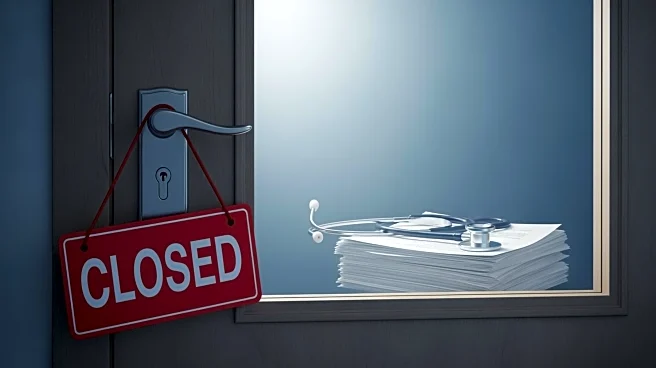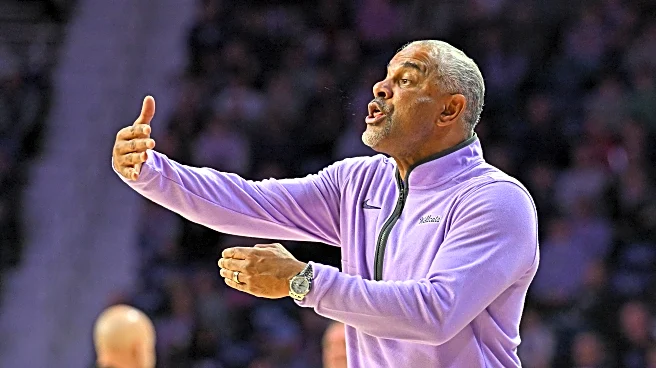What's Happening?
The federal government remains shut down as negotiations between Republicans and Democrats have stalled. The primary contention is over the inclusion of pandemic-era health care subsidies in a funding bill. Republican Senator Katie Britt has criticized
the Affordable Care Act, labeling it as fundamentally flawed and opposing the extension of subsidies without reform. She argues that the program is plagued with fraud and waste, suggesting that any discussion on subsidies should occur after the government reopens. Similarly, GOP Representative Nick LaLota has expressed that negotiating on subsidies now would encourage future 'hostage-taking.' Despite acknowledging the value of these subsidies to constituents, LaLota insists that Democrats must act to reopen the government.
Why It's Important?
The ongoing government shutdown has significant implications for U.S. politics and public policy. The deadlock over health care subsidies highlights the deep partisan divide on health care reform. The shutdown affects federal employees and services, potentially impacting the economy and public trust in government. The refusal to negotiate on subsidies could lead to prolonged disruptions, affecting sectors reliant on federal operations. The situation underscores the challenges in achieving bipartisan cooperation on critical issues, with potential long-term effects on legislative processes and governance.
What's Next?
As the Senate reconvenes, the focus will be on whether Democrats can propose a compromise acceptable to Republicans to end the shutdown. The outcome of these negotiations will be closely watched by political leaders and the public. If no agreement is reached, the shutdown could extend, increasing pressure on lawmakers to find a resolution. The debate over health care subsidies may resurface in future legislative sessions, potentially influencing upcoming elections and policy directions.















